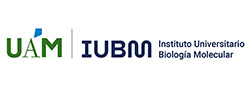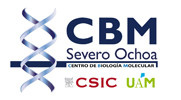Immunoregulatory mechanisms in the development of Chagas disease: translational applications.
Prof. Núria Gironès Pujol. Profesor Titular. Departamento de Biología Molecular. UAM.
During 2021 and 2022 the objectives of our research group were: (i) to further study the role of the SLAMF1 immune receptor in the infection Trypanosoma cruzi, the causative agent of Chagas disease; (ii) to evaluate the prognostic value of an isoform of TCFL5 (sCha) in Chagas disease patients; (iii) to study the effects of T. cruzi infection in cardiac remodeling; and (iv) to contribute to the understanding of T, cruzi mitochondrial genome, transcriptome and proteome.
Scientific implications and relevance:
Some of the objectives are about to be reached, submitted for publication, or already published.
We pursued the research on the SLAMF1 immune receptor during infection using proteomics, and identified target genes that are being studied for their relevance in the context of the infection as therapeutic targets. We also studied the prognostic value of circulating miRNAs in Chagas disease patients, and the alterations in miRNA expression in macrophages infected with T. cruzi, and identified for the first time the presence of T. cruzi miRNAs in the infected culture that localize in extracellular vesicles (EVs).
We studied cardiac remodeling in the experimental mouse model of T. cruzi infection, and found overexpression of HCN4 channels, suggesting that arrythmogenic treatments should be administered with caution in Chagas disease patients since they can have secondary effects (Rodriguez-Angulo H.O. et al. 2021).
We determined the complete genome of mitochondrial maxicircle and minicircles of T. cruzi. It was previously thought that minicircles were circular dsDNA composed of 4 repetitive elements, but using NGS sequencing we also found minicircles of 3, 2 and 1 repeats in the mitochondrial DNA. These findings are relevant because little is known about the role of the T. cruzi mitochondrial genome, and these findings may help to understand better the molecular biology of the parasite for fighting the infection (Callejas-Hernández F. et al. 2021).
Finally, we showed that autoantibodies against the immunodominant sCha (a TCFL5 isoform) epitope discriminate the risk of sudden death in chronic Chagas cardiomyopathy. Autoantibody levels correlated with the alterations found in 24h Holter ECG recording for the detection of arrhythmias and prevention of sudden death, and thus having a potential application as an alternative when Holter ECG is not available (Rodríguez-Angulo H.O. et al. 2021). We also collaborated in studies about the role of TCFL5 in spermatogenesis (Galán-Martínez J, Berenguer I.et al. 2022) and colorectal cancer (Galán.Martínez J., Stamatakis K. et al., 2022) with the research group of Dr. Manuel Fresno.


